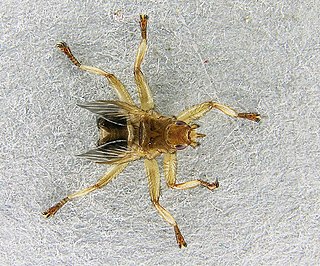
Pinus canariensis, the Canary Island pine, is a species of gymnosperm in the conifer family Pinaceae. It is a large, evergreen tree, native and endemic to the outer Canary Islands of the Atlantic Ocean.

Arbutus is a genus of 12 accepted species of flowering plants in the family Ericaceae, native to warm temperate regions of the Mediterranean, western Europe, the Canary Islands and North America. The name Arbutus was taken from Latin, where it referred to Arbutus unedo.

Canary grass is a plant, Phalaris canariensis, belonging to the family Poaceae. Originally a native of the Mediterranean region, it is now grown commercially in several parts of the world for birdseed.

Phoenix canariensis, the Canary Island date palm or pineapple palm, is a species of flowering plant in the palm family Arecaceae, native to the Canary Islands off the coast of Morocco. It is a relative of Phoenix dactylifera, the true date palm. It is the natural symbol of the Canary Islands, together with the canary Serinus canaria. Mature P. canariensis are often used in ornamental landscaping and are collected and transplanted to their new planting location. A Canary Island date palm with 10 m (30 ft) of trunk is approximately 60 years of age.

Hippoboscidae, the louse flies or keds, are obligate parasites of mammals and birds. In this family, the winged species can fly at least reasonably well, though others with vestigial or no wings are flightless and highly apomorphic. As usual in their superfamily Hippoboscoidea, most of the larval development takes place within the mother's body, and pupation occurs almost immediately.

The Canarian shrew is a species of mammal in the family Soricidae. It is endemic to the Canary Islands, specifically the eastern islands of Lanzarote, Fuerteventura, Lobos, and Mount Clara. It used to be found on Graciosa, Canary Islands and Alegranza. Its natural habitat is subtropical or tropical dry shrubland. It is threatened by habitat loss.

Arbutus canariensis, known in Spanish as madroño canario, is a species of shrub or tree in the heath family. It is endemic to the Canary Islands of Spain, specifically Tenerife, La Gomera, Gran Canaria, El Hierro, and La Palma. It is threatened by habitat loss.

Euphorbia canariensis, commonly known as the Canary Island spurge, Hercules club or in Spanish cardón, is a succulent member of the genus Euphorbia and family Euphorbiaceae endemic to the Canary Islands. It is the plant symbol of the island of Gran Canaria.
Cerobasis rosae is a species of Psocoptera from the Trogiidae family that is endemic to Canary Islands.
Cerobasis pineticola is a species of Psocoptera from the Trogiidae family that is endemic to Canary Islands.
Cerobasis nigra is a species of Psocoptera from the Trogiidae family that is endemic to Madeira.
Cerobasis rosae is a species of Psocoptera from the Trogiidae family that is endemic to Madeira.
Cerobasis longicornis is a species of Psocoptera from the Trogiidae family that is endemic to the Canary Islands.
Cerobasis insularis is a species of Psocoptera from the Trogiidae family that is endemic to the Canary Islands.
Cerobasis harteni is a species of Psocoptera from the Trogiidae family that can be found in the Azores and North Africa.
Cerobasis albipes is a species of Psocoptera from the Trogiidae family that is endemic to Madeira.
Cerobasis amorosa is a species of Psocoptera from the Trogiidae family that is endemic to Cyprus.
Cerobasis ericacea is a species of Psocoptera from the Trogiidae family that is endemic to Canary Islands.
Cerobasis denticulata is a species of Psocoptera from the Trogiidae family that is endemic to the Canary Islands.
Cerobasis annulata is a species of Psocoptera from Trogiidae family that can be found in Austria, Azores, Belgium, Cyprus, France, Germany, Great Britain, Greece, Italy, Luxembourg, Madeira, Norway, Poland, Portugal, Switzerland, and the Netherlands.







